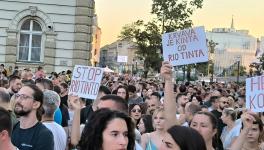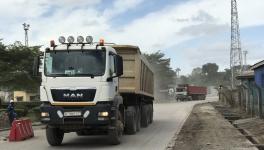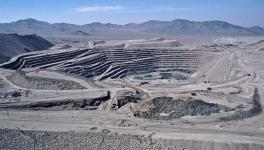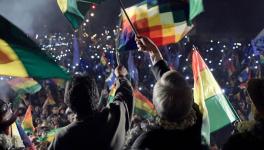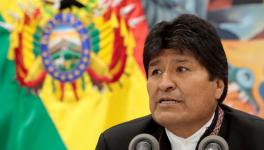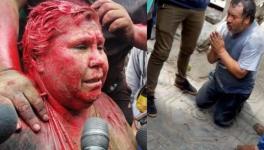Bolivia Prepares to Elect its Next President
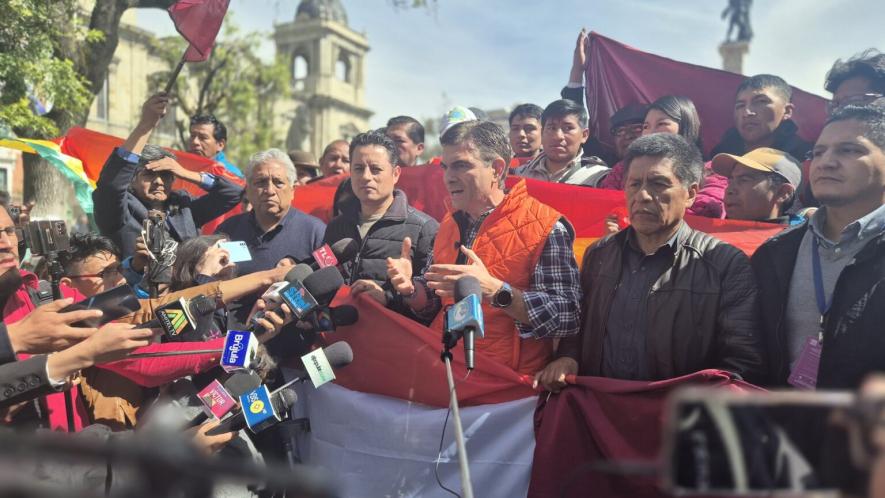
Bolivian presidential candidate Rodrigo Paz speaking at a campaign rally. Photo: Rodrigo Paz / X
On October 19, Bolivia will hold a second round of elections to choose the country’s next president. Rodrigo Paz Pereira, of the Christian Democratic Party, won the first round with 32.06% of the valid votes. Jorge Quiroga Ramírez, of the Free Alliance, came in second with 26.7% of the votes.
Right-wing candidate Samuel Doria, who had been placed in first place in several polls, failed to make it to the runoff, and his third-place finish came as a big surprise.
The left, without representation in the runoff, was completely divided going into the August 17 elections. The candidate of the MAS, the ruling party since 2006, Eduardo Del Castillo, won only 3.17% of the vote, the lowest percentage since the 1990s.
On the other hand, the disqualification of former president Evo Morales (2006-2019) from participating in the elections led his political group to call for a null vote, which reached 19%. The best-placed candidate on the left was Senate President Andrónico Rodríguez, who obtained 8% of the vote, coming in fourth place.
A difficult election campaign
From the moment the results were known, the two right-wing candidates have been actively campaigning, which on several occasions has consisted of open and sometimes personal criticisms of their opponent. This happened even though Paz and Quiroga had pledged to avoid a “dirty war”.
Paz, a self-described center-right economist, is the son of former president Jaime Paz Zamora (1989-1993) and has waged a more aggressive campaign than his opponent. Much of the election campaign has been carried out by his vice-presidential candidate, Edman Lara, whom some have described as the outsider candidate in the elections, gaining popularity thanks to his videos on TikTok.
Lara is a former police captain who exposed cases of corruption and, according to several analyses, was key to Paz’s victory in the first round. In a debate against Juan Pablo Velasco, Quiroga’s vice president, Lara avoided discussing specific proposals and instead made promises regarding anti-corruption and constitutional reform.
In the media in recent days, Quiroga has been denouncing the alleged plans to annul the results of the first round, due to purported irregularities in some voting records. Quiroga welcomed the arrival of the European Union Commission in Bolivia: “We appreciate their presence here because those who feel they are being watched, who may be tempted to do something illegal or undemocratic, will surely back down.”
Advantage for Quiroga
However, despite Paz and Lara’s aggressive campaign and their victory in the first round, several polls do not seem to favor the center-right. According to an Ipsos CIESMORI poll, former president Jorge “Tuto” Quiroga, the ideologue of neoliberalism in Bolivia, appears to be ahead of Paz. According to the pollster, Quiroga would obtain 47% of the votes, while Paz currently has a voting intention of 39.9%, meaning there is a difference of 7.7 points.
In line with this trend, polling firm CB Consultora reported that Quiroga has the highest voting intention, with 44.4% of the votes, while Paz would reach 36.2%. In addition, CB Consultora reported that 7.3% of Bolivians have not yet decided who to vote for, so Quiroga maintains a comfortable lead, although pollsters have already shown that they can be wrong, as happened when they claimed that Doria would win the first round.
Another alleged poll that has been circulating on social media shows Paz with 77.5% of the vote, while Quiroga would receive just 17.5%. However, this poll has not been corroborated, and several television channels, such as Unitel, have claimed that it is fake.
The shift to the right
For now, Bolivia continues in a fierce election campaign that will determine the winner in the coming days in a country that has taken a clear shift to the right, and where the left has virtually no significant representation in formal politics, in neither the executive or legislative branches, where only seven seats went to the left, compared to more than 110 for the right.
Both candidates propose a 180-degree transformation for Bolivia, promising a departure from the strong welfare state that had been built by the Movement Toward Socialism (MAS) governments since 2006. Many analysts assume that neoliberalism will be the country’s economic policy for the next four years, meaning a reduction in the size of the state and austerity policies.
In terms of foreign policy, both candidates predict a shift away from Venezuela, Cuba, and ALBA-TCP, and a move closer to Washington. Therefore, the election in Bolivia is not indifferent to the geopolitical balance of power, especially when considering the country’s natural resources, such as tin, zinc, and, perhaps most important for today’s technology, lithium.
Courtesy: Peoples Dispatch
Get the latest reports & analysis with people's perspective on Protests, movements & deep analytical videos, discussions of the current affairs in your Telegram app. Subscribe to NewsClick's Telegram channel & get Real-Time updates on stories, as they get published on our website.










